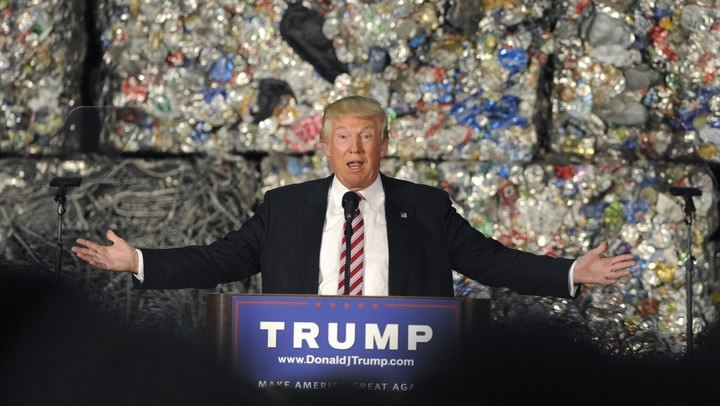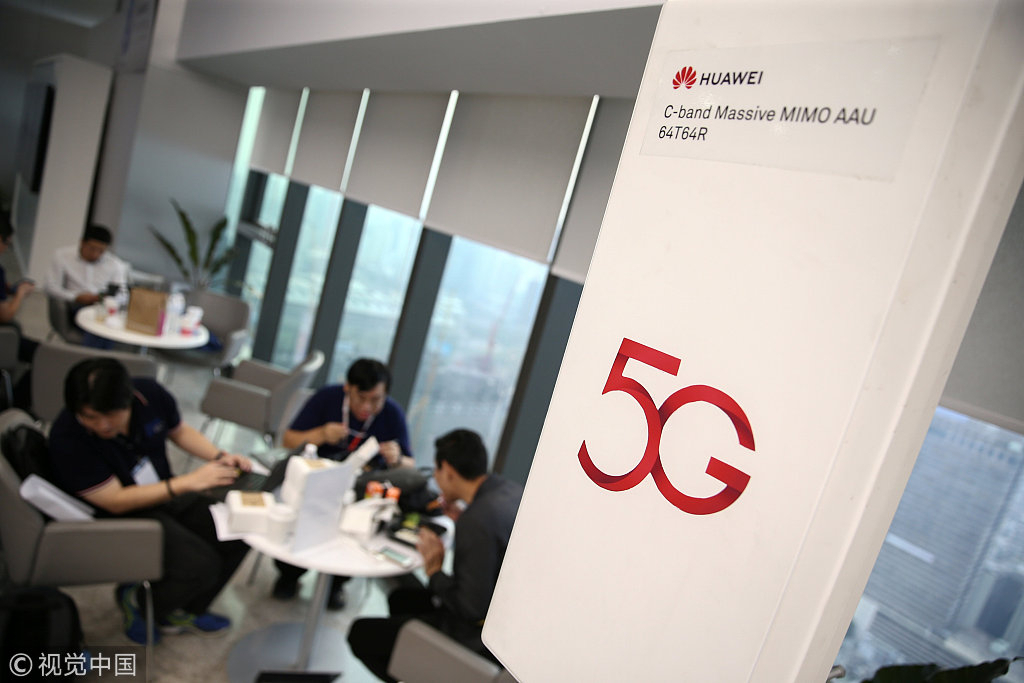
Opinion
09:02, 11-Jun-2019
National security: Abused sympathetic chord
Ren Zheng

Editor's note: Ren Zheng is a PhD student majoring in American politics and international strategy, at the China Institute of Contemporary International Relations. The article reflects the author's opinion, and not necessarily the views of CGTN.
The eventually-lifted ZTE denial order imposed by the U.S. Department of Commerce, Bureau of Industry and Security (BIS) last year was widely recognized as a bargaining chip to gain an advantage in China-U.S. trade talks. Recently, BIS played the role of leverage in the trade struggle with China once again, with the addition of Huawei and its affiliates to the Bureau's Entity List.
From ZTE to Huawei, what is used repeatedly is not only the negotiation strategy with various sanctions, but also the name of "national security", which has already been invoked far too often by Donald Trump in his "America First" policy. As a response to the growing competition, political formulas such as "national interest" or "national security" regain popularity, offering guidance and basis for broad consensus.
Arnold Wolfers, author of "National Security as an Ambiguous Symbol", even said “Today any reference to the pursuit of security is likely to ring a sympathetic chord.” Thus, the abuse of “sympathetic chord” may be just permitting everyone to label whatever policy he favors with an attractive and possibly-deceptive name, which may not have any precise meaning at all.
However, what needs to be scrutinized with particular care is the tune behind the chord.
Hammer in hand, everything like nails
Holding the hammer of "national security" in hand, anything related to the so-called national security looks like a nail. Huawei or ZTE is neither the first nor the last victim of the hammer. The block of the merger between Ant Financial Services Group and American remittance company MoneyGram is also due to the hidden danger posed to national security.

A Huawei 5G device on display at an exhibition in Bangkok, Thailand, January 30, 2019. /VCG Photo
A Huawei 5G device on display at an exhibition in Bangkok, Thailand, January 30, 2019. /VCG Photo
From the above cases, it can be found that most companies rejected or alerted by the U.S. are technology companies, who are thought to steal core technology and important data, thereby seriously endangering U.S. national security and damaging its economic interests. With the growing anxiety of security, the more to confuse technology or other things with national security interests, the more the U.S. begins to regard everything as national security.
U.S. real face: national security machine
Since Trump took office, the U.S. government has accelerated the change from a contact policy to a containment policy towards China.
Without real evidence or legitimate reasons, the country often discredited Chinese companies for the sake of "national security", politicized normal science and technology exchange and cooperation activities on unwarranted charges, and set up various obstacles and restrictions on the normal business activities of Chinese enterprises.
All the suppression behavior mentioned above shows that the national security machine is revealing its real face confronting with China's strong rise.
Gore Vidal once gave an in-depth analysis of the nature of the U.S. in his History of the National Security State, the core content of which is the discourse and logic of "American enemy".
Specifically, the U.S. will always need, find and define enemies according to their own values, even disregarding the facts and distorting the truth.
Questions about national security
Here finally comes the question, therefore, whether "national security" can really work as a meaningful guide for action, serving as a basis to distinguish and judge policies.

U.S. National Security Advisor John R. Bolton speaks during the Bay of Pigs Veterans Association luncheon at the Biltmore Hotel in Coral Gables, Florida, April 17, 2019. /VCG Photo
U.S. National Security Advisor John R. Bolton speaks during the Bay of Pigs Veterans Association luncheon at the Biltmore Hotel in Coral Gables, Florida, April 17, 2019. /VCG Photo
According to David Jablonsky, author of "The State of the National Security State", the key to national security is to maintain evolution all the time. To avoid underestimating new external dangers or diverting into idealistic channels unmindful of these dangers, adjustments have to be made in the concept of U.S. national security.
From the evolving perspective, there are traces to follow nowadays abuse of "national security". Forces and trends including revolutions in technology, communications, information and transportation have altered the place of time and distance in the consideration of fundamental U.S. interests, and drastically complicated the concept of national security.
In the eyes of today's Americans, they are living under the impact of new cold war and threats of "revisionist powers" rather than terrorist attacks or a financial crisis. The result is a national sense of anxiety, uncertainty, and vulnerability similar to that of the early years of the Cold War, which has made the national interest come to be practically synonymous with national security again.
As with what was done in those years, the American administration resorted to constant mobilization and readiness required for an economic or technology war to the emphasis of national security. However, the question remains whether the U.S. can fashion a confluence of economic prosperity, global stability, and national security supported by a widely accepted grand strategy. It will not be easy in the age of globalism.
What's more, it's hard to know what people have in mind if they complain that their government is neglecting national security or demanding excessive sacrifices for the sake of enhancing it. Sooner or later, all the questions will get answers in the result of the U.S. election.
(If you want to contribute and have specific expertise, please contact us at opinions@cgtn.com.)

SITEMAP
Copyright © 2018 CGTN. Beijing ICP prepared NO.16065310-3
Copyright © 2018 CGTN. Beijing ICP prepared NO.16065310-3